Key Points
- Eiffel Tower, built in 1889, was criticized but now a global icon with 250M+ visitors.
- Statue of Liberty, assembled in 1886, changed from reddish-brown to green due to oxidation.
- Machu Picchu, 'discovered' in 1911, was restored after being covered in vegetation.
Famous World landmarks: The Great Wall of China and the Pyramids of Giza are two of the most famous landmarks in the world. They are more than just monuments from history; they show how ambitious and important people have been throughout history. In 2025, the world is still focused on finding a balance between mass tourism and preservation. This is shown by groups like UNESCO and the World Monuments Fund (WMF), which recently put several famous landmarks, like rock-cut grottos, on their endangered list.
Discover how these seven historical landmarks of the world have dramatically transformed, survived decay, and often sparked controversy to become the global icons we know today. Prepare to see the ‘before and after’ of history’s greatest creations.
List of Famous Landmarks of the World and Their Evolution
The table below gives a quick look at the seven famous world landmarks that were chosen, including where they came from and what they are like today.
| Famous Landmark | Location | Year of Origin | Modern Status |
| Eiffel Tower | Paris, France | 1889 | Global Icon & Communication Hub |
| Great Sphinx of Giza | Giza, Egypt | c. 2500 BC | UNESCO World Heritage Site |
| Statue of Liberty | New York City, USA | 1886 | National Monument & Symbol of Freedom |
| Colosseum | Rome, Italy | 80 AD | Major Archaeological Site |
| Machu Picchu | Cusco Region, Peru | c. 1450 | Lost City of the Incas & UNESCO Site |
| Taj Mahal | Agra, India | 1648 | Symbol of Love & Architectural Masterpiece |
| Hollywood Sign | Los Angeles, USA | 1923 | Cultural Landmark |
Check Out - List of 9 Largest Museums in the World in 2025: Updated
1. Eiffel Tower

Foundation of Eiffel Tower, 1887, Credit - Wikipedia
This well-known landmark was first built as a temporary entrance arch for the 1889 Paris Exposition, not as the permanent structure we see today. At first, many famous Parisians, including artists and writers, strongly criticized the Eiffel Tower, calling it a "monstrous" structure that would ruin the look of the city.
Photos of the building show its complicated iron lattice slowly rising, which is a raw industrial wonder. Today, over 250 million people have visited, cementing its status as the global symbol of Paris. Its current brownish-grey hue is a far cry from the original reddish-brown paint or the yellow-gold it wore for the 1900 Exposition!
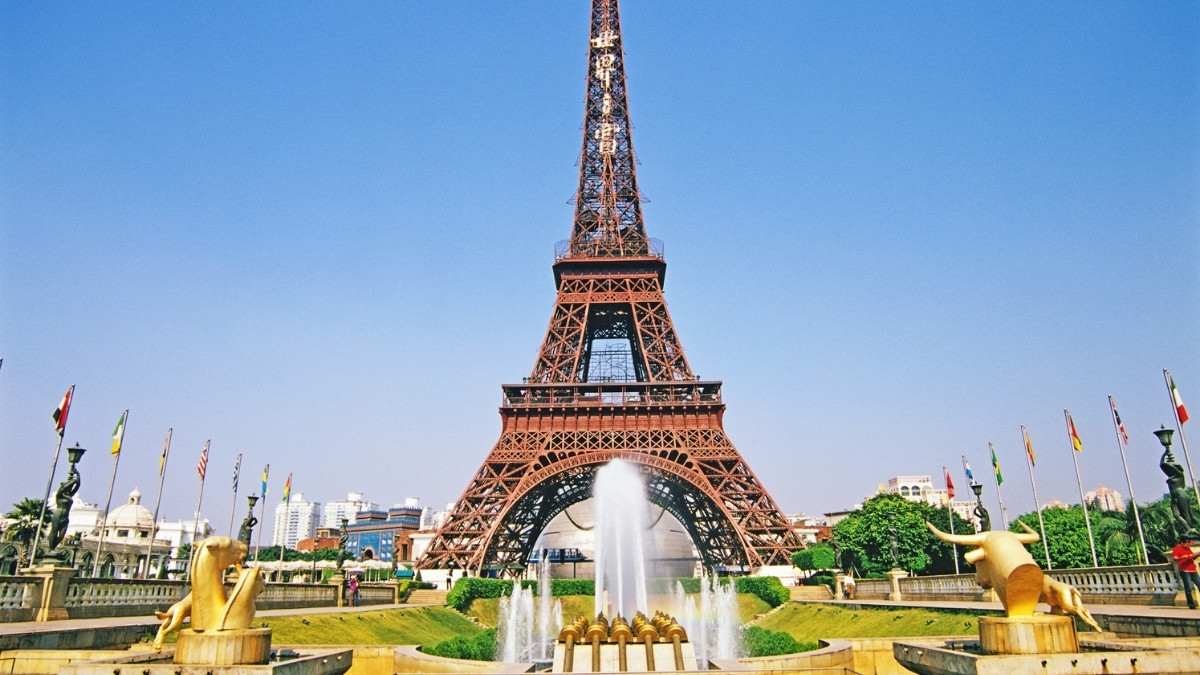
2. Great Sphinx of Giza

Great Sphinx of Giza Partially Excavated, Credit - Wikipedia
The Great Sphinx of Giza is probably the best example of a well-known world landmark that has changed a lot. For centuries, this colossal 4,500-year-old mythological creature, part man, part lion, was buried up to its shoulders in desert sand.
Vintage photographs from the late 19th century depict British soldiers and early archaeologists standing next to a mostly submerged head. It wasn't until extensive excavations in the 1920s and 1930s that the entire body, paws, and base were fully uncovered, revealing the majestic scale of the sculpture that tourists marvel at now.
3. Statue of Liberty

Pedestal of Bertholdi's Statue of Liberty (left); Statue of Liberty at Liberty Island now (right)
The Statue of Liberty is instantly recognizable today by its iconic verdigris (greenish-blue) color. However, when the massive copper structure was assembled on Liberty Island in 1886, it was a gleaming, reddish-brown color, the natural shade of polished copper.
Early 'then' pictures often show the statue still under construction in Paris, France, before being shipped to the US as a gift. It took decades of being exposed to salty air and rain for the copper to oxidize and form the protective patina that gives the monument its current color and keeps it from rusting.
4. Colosseum

Interior of the Colosseum by late nineteenth century, Credit - Wikipedia
The Colosseum in Rome is one of the most famous buildings in the world. It has changed a lot since its peak usefulness. After hosting gladiatorial contests and public spectacles for centuries, the enormous amphitheater fell into disuse following the decline of the Roman Empire. Its shell was largely stripped for building materials, even being used as a quarry for subsequent centuries.
Early drawings and photos show the structure severely overgrown with vegetation. Modern conservation work has stabilized the ruins, turning them from a neglected stone shell into a famous historical site that millions of people visit every year.
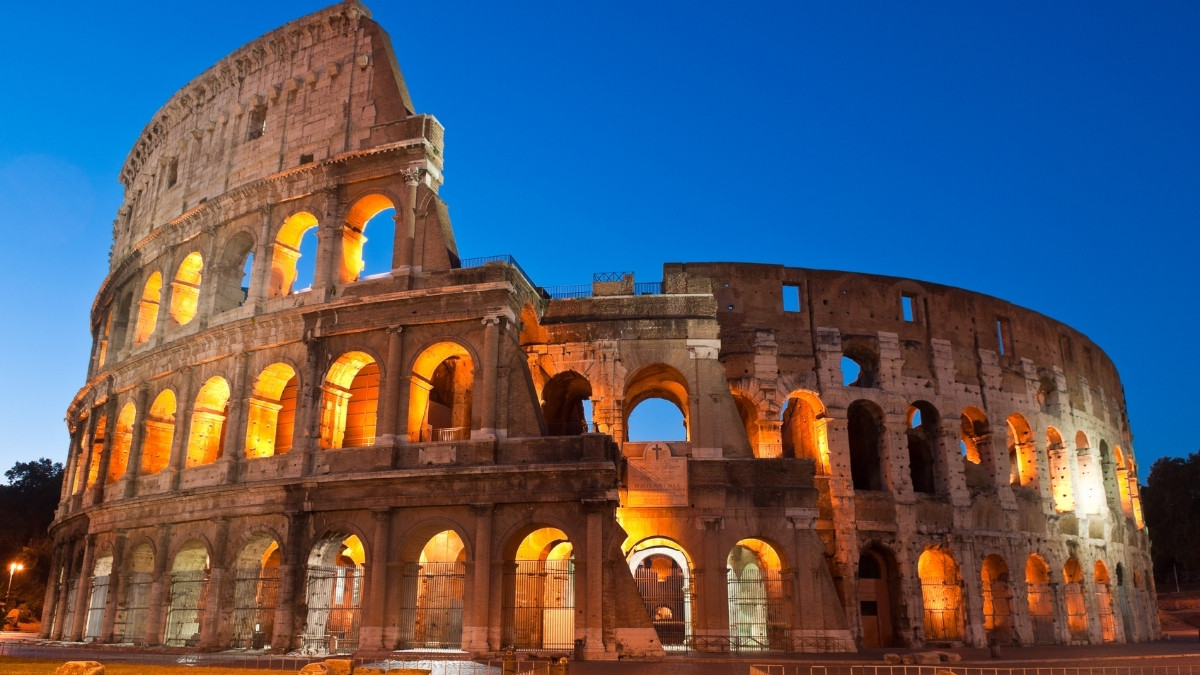
5. Machu Picchu
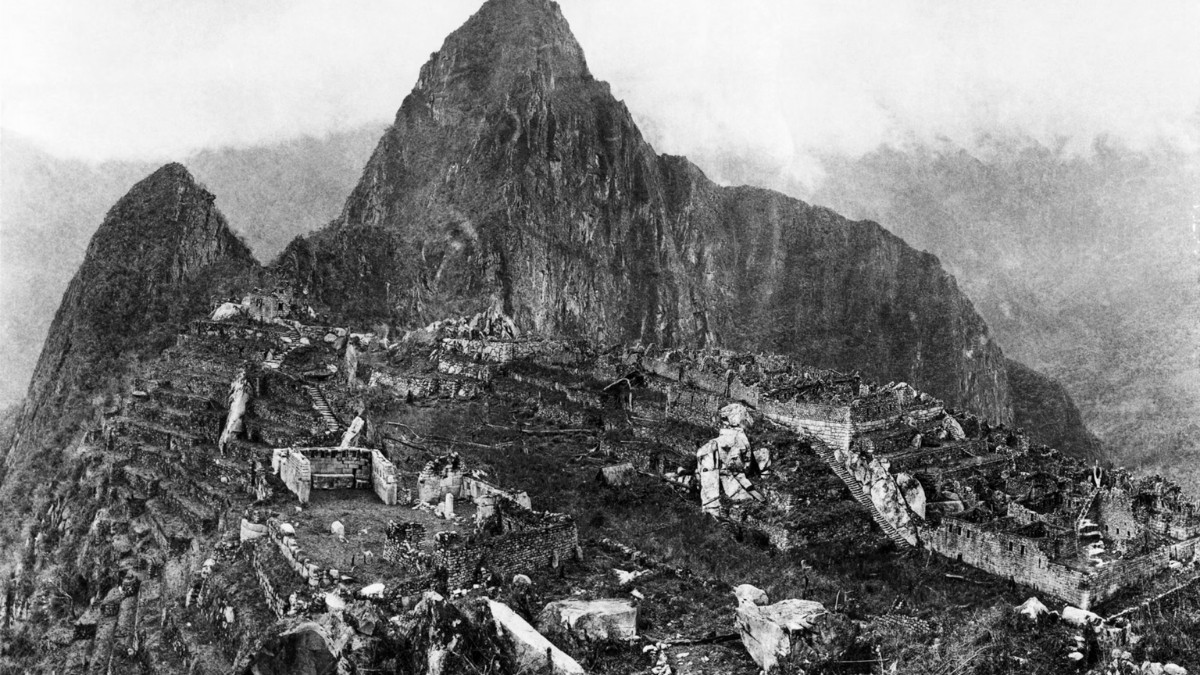
One of the first pictures of Machu Picchu, taken by Hiram Bingham III in 1912, Credit - Wikipedia
For hundreds of years, only people who lived nearby knew about Machu Picchu, the Incan citadel high in the Andes Mountains. Hiram Bingham "discovered" it in 1911, and early photos show the intricate terraces and stone buildings almost completely covered in thick vegetation, making it look like natural hills instead of a complex city.
The 'now' pictures reflect decades of careful excavation and restoration, which removed the forest overgrowth to reveal the breathtaking architectural genius and sophisticated integration with the natural landscape that defines this UNESCO World Heritage Site today.
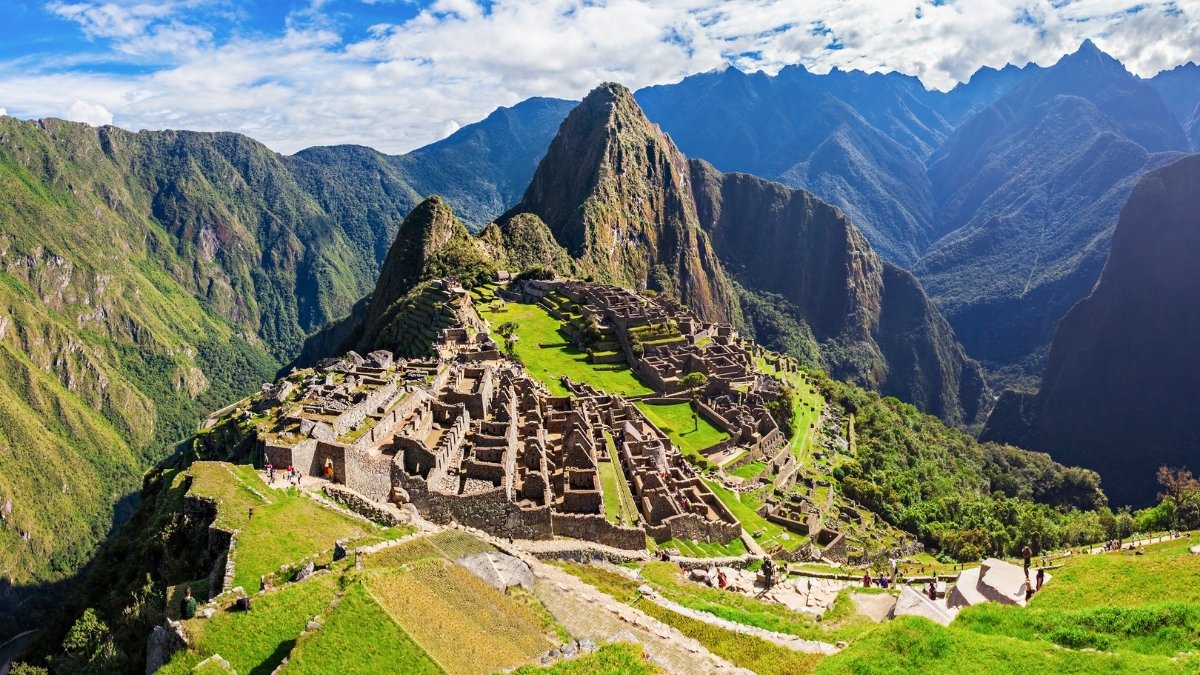
6. Taj Mahal
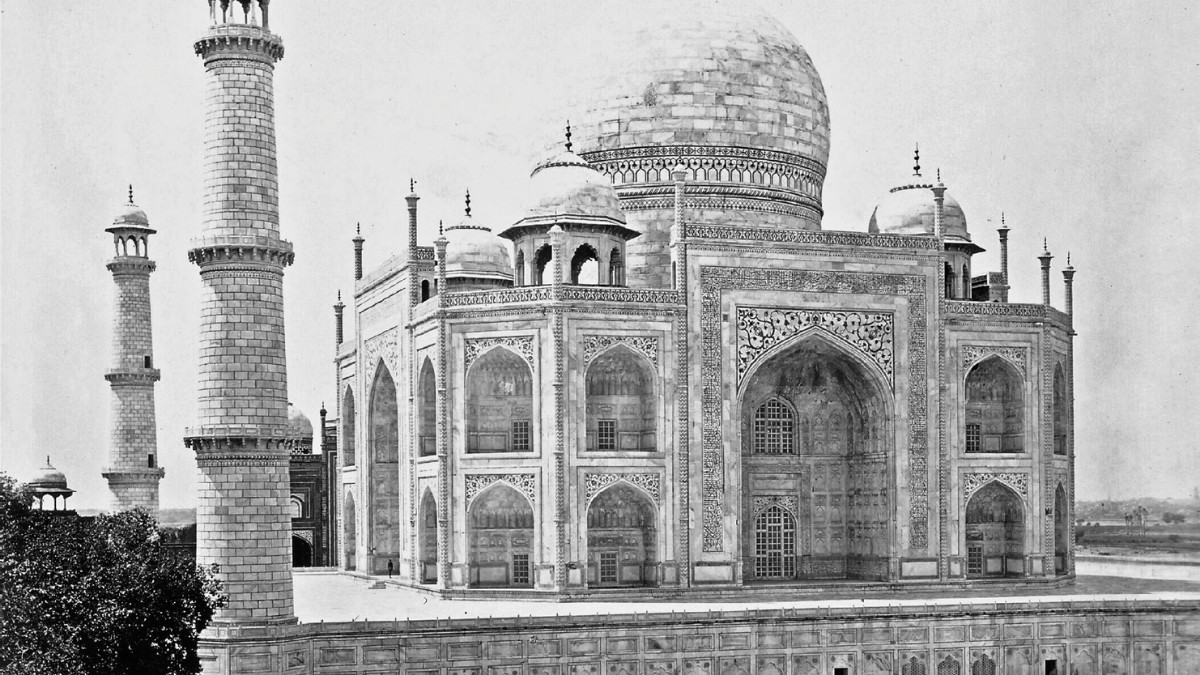
The Taj Mahal photographed by Samuel Bourne, 1860s, Credit - Wikipedia
The Taj Mahal in Agra, India, has always been a stunning monument to love, but its surroundings and brilliance have changed. Vintage photos from a century ago show a much quieter complex with fewer visitors and far lusher, thicker surrounding gardens. The basic structure hasn't changed, but the pure white marble has been damaged by the environment.
Today, air pollution needs ongoing restoration and chemical treatments to keep its signature clean look. This is a modern problem that wasn't a problem when Emperor Shah Jahan built it in the 17th century.
-1763449672041.jpg)
7. Hollywood Sign
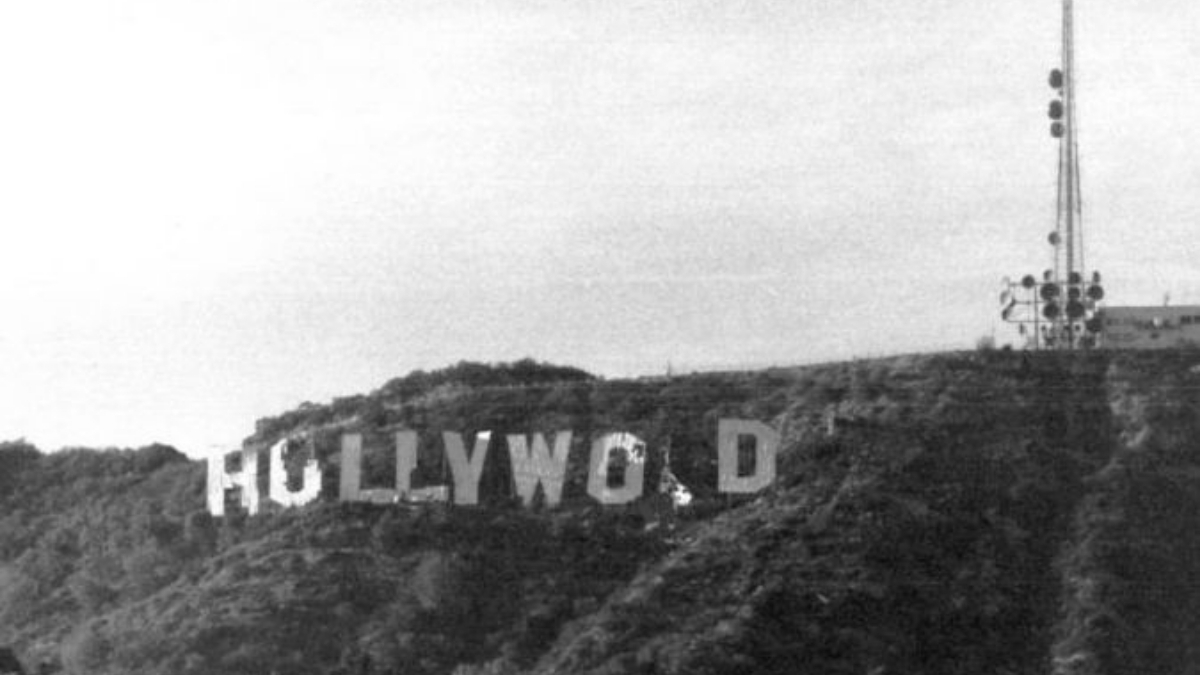
Hollywood Sign before restoration in 1970s, Credit - Wikipedia
The Hollywood Sign in Los Angeles is different from other famous landmarks because it started out as a huge real estate billboard in 1923. It originally read "HOLLYWOODLAND" and was intended to be temporary. By the late 1940s, the sign was in major disrepair. The "then" picture would show the whole 13-letter word, which often looked broken.
The "now" picture shows the shorter, fully restored "HOLLYWOOD" sign. Since the "LAND" part was taken down to focus on the city itself, it has become a permanent cultural icon. This is a great example of a famous landmark changing its purpose.
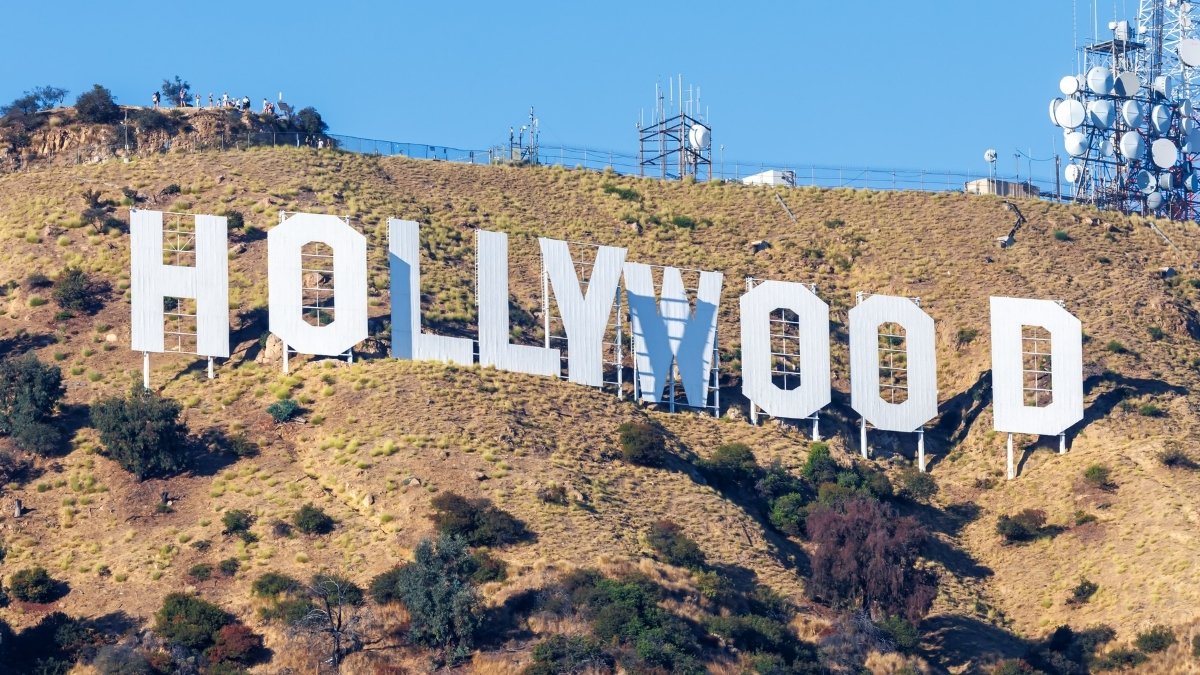
Read about - A City With No Cars or Pollution? See How This German Town Mastered Green Living
In conclusion, these famous world landmarks, shown through a "then and now" lens, are a powerful reminder that history is always changing. It is a process of building, falling apart, rediscovering, and preserving. And we have to keep up with this change.
Comments
All Comments (0)
Join the conversation